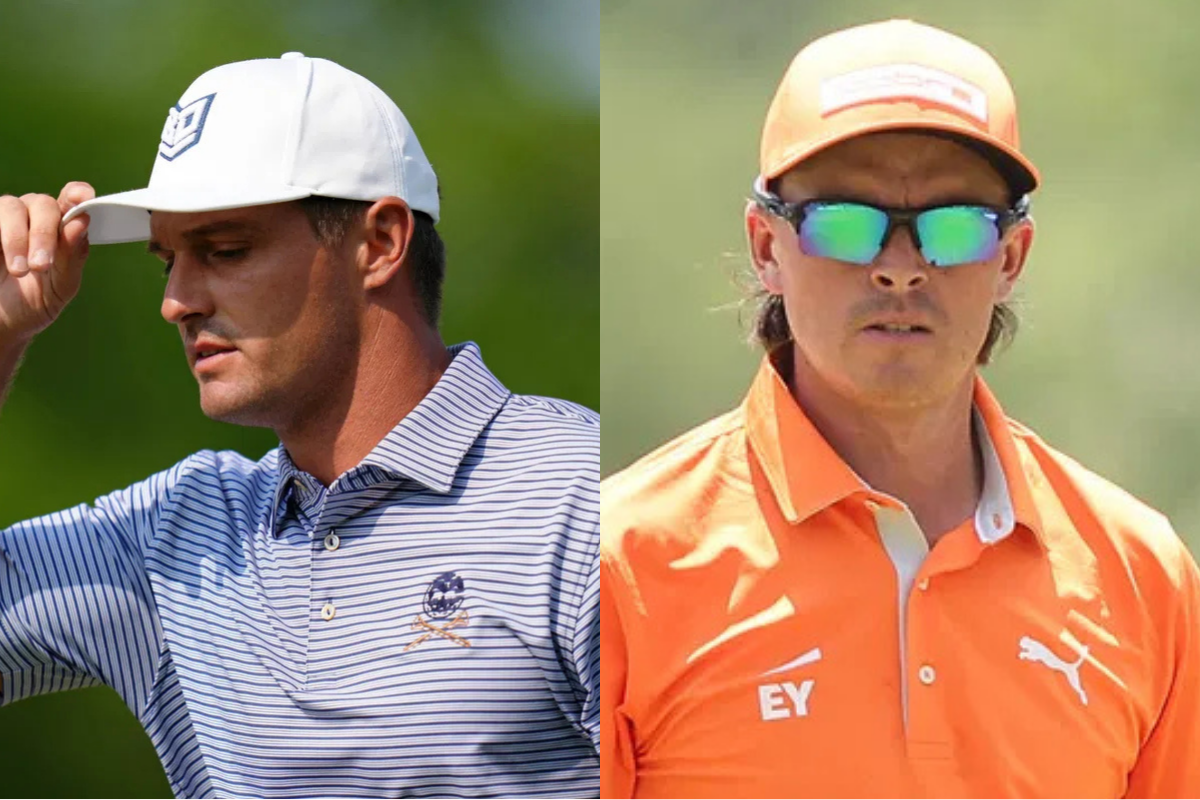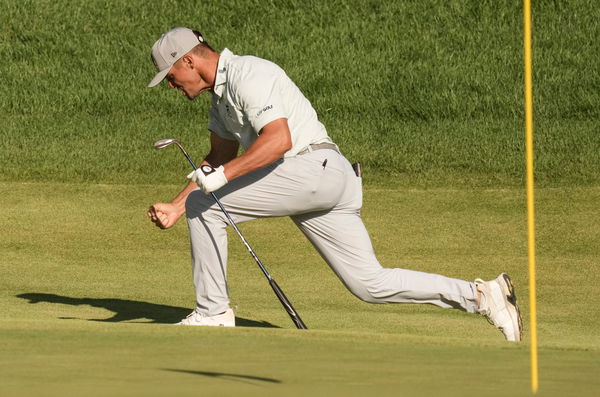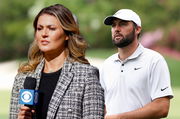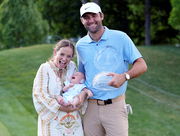

What happens when a rising golf star signs with a major brand but demands one non-negotiable condition—don’t make me look like your biggest name? That’s precisely what Bryson DeChambeau did when he inked his deal with Puma Golf in April 2016.
Watch What’s Trending Now!
Fresh off turning professional after his tied-21st Masters finish as low amateur, DeChambeau made one thing clear to Puma: he didn’t want to be Rickie Fowler 2.0. On the October 15, 2025, episode of Son of a Butch, Bob Philion—former President & CEO of Cobra Puma Golf—revealed the fascinating story behind DeChambeau’s signing.
“When we signed Bryson, he didn’t want to be like Ricky,” Philion explained. “None of the players after Ricky wanted to look like Ricky, right? He had his own lane and was rocking his stuff.”
ADVERTISEMENT
And what a lane Rickie Fowler had carved. Since his 2009 signing with Puma, Fowler has revolutionized golf fashion with his progressive aesthetic—featuring flat-brim caps, vibrant orange Sunday outfits, high-top shoes paired with joggers, and neon pink Tricks shoes. His motocross background influenced his distinctive look, setting him apart even before he won his first event.

USA Today via Reuters
May 18, 2024; Louisville, Kentucky, USA; Bryson DeChambeau celebrates after hitting for an eagle on the eighth hole during the third round of the PGA Championship golf tournament at Valhalla Golf Club. Mandatory Credit: Matt Stone-USA TODAY Sports. TPX IMAGES OF THE DAY
By 2016, Fowler’s bold style had become synonymous with Puma Golf itself. Philion noted that when they signed Fowler, Puma Golf accounted for less than 10% of the company’s overall business. Still, they were looking for athletes with “world-class performance” and a confident “swagger” or “hook” that made them stand out. That created a challenge—how do you sign another young star without making them a knockoff?
ADVERTISEMENT
DeChambeau solved it himself. “Bryson kind of played more of this classic lane where Ricky was kind of doing the progressive thing,” Philion noted. Instead of chasing neon, DeChambeau leaned into vintage style. His signature Puma Tour Driver Cap, channeling Ben Hogan and Payne Stewart, became his trademark. Classic polos, traditional pants, and Sunday’s red, white, and blue honoring Southern Methodist University created a completely different identity.
The 6-to 7-year partnership proved that the strategy worked. DeChambeau’s refined look appealed to traditionalists while Fowler’s progressive fashion evolved separately. When the contract ended in 2022, after DeChambeau joined LIV Golf, both the player and the brand had achieved authentic representation without imitation.
ADVERTISEMENT
Top Stories
‘Unreal’: Amanda Balionis Left Stunned by Scottie Scheffler at The American Express

Multiple PGA Tour Pros Withdraw From Farmers Insurance Open Days Before It Begins

Patrick Reed’s Bombshell Claim About LIV Golf Contract Explains His Eagerness to Rejoin PGA Tour

Scottie Scheffler’s Adorable Moment With Son Bennett and Wife Meredith Leaves Fans in Awe

Prayers Pour in for PGA Tour Champions Star as Cancer Diagnosis Comes to Light

Puma’s player-centric philosophy: every athlete gets their own lane
The DeChambeau signing reveals Puma Golf’s broader philosophy—individuality over uniformity. “We wanted players that had a point of view on it and, in fact, different points of view,” Philion explained.
Gary Woodland offers another example. Signing with Puma in January 2019, his partnership with Volition America—a patriotic brand that supports military families through Folds of Honor—gave him a distinct edge. “My grandfather was in the military, and I’ve been part of the Folds of Honor Foundation since 2009, so having the opportunity to wear PUMA’s Volition America collection is the perfect fit for me,” Woodland stated. The red, white, and blue collection became his signature, notably when he won the 2019 U.S. Open at Pebble Beach.
ADVERTISEMENT
Lexi Thompson developed her own identity too. The first golfer signed to the combined Cobra-Puma label in 2010 at just 15, Thompson created her “Sunday Blue” aesthetic. “At the Evian tournament in 2010, in which I came in second, I wore baby blue on a Sunday. And ever since then, I’ve worn it every Sunday,” she explained. Her vibrant colors and sleeveless racerback tops created a look nothing like Fowler or DeChambeau.
“As things kind of evolved, you kind of evolved the player and their taste,” Philion noted. “It’s got to be kind of authentic and kind of organic to them.”
That philosophy built Puma Golf into a major force. Under Philion’s 20-year leadership, the brand achieved 18 consecutive years of growth while giving athletes the creative freedom modern endorsements demand. DeChambeau’s insistence on his own lane perfectly captures that shift—today’s athletes won’t settle for being someone else’s shadow.
ADVERTISEMENT
ADVERTISEMENT
ADVERTISEMENT
ADVERTISEMENT
